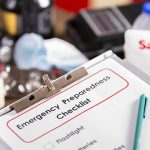
Avoid these 7 mistakes when buying canned foods
Friday, August 06, 2021 by Divina Ramirez
http://www.naturalnewstips.com/2021-08-06-avoid-7-mistakes-when-buying-canned-foods.html

Canned foods are must-haves in your food stockpile because they are compact, inexpensive and last significantly longer than fresh foods. But it’s because of these characteristics that people sometimes neglect their stocks or buy canned foods haphazardly, thereby significantly compromising the quality of foods in their stockpile.
Here are seven mistakes you may be making when buying canned foods: (h/t to AskAPrepper.com)
1. Disregarding best- and use-by dates
Canned foods don’t really have an expiration date. Instead, you’ll typically find one of two labels printed on the cans, namely, the “best-by” and “use-by” dates. Here’s what each of these labels means:
- Best by – This date indicates the recommended time to use the product for the best flavor and quality.
- Use by – This date marks the final day that the product will be at its peak flavor and quality. After this date, the quality and nutritional value of the food will begin to deteriorate but will remain edible.
In most cases, eating food after these dates just means a decline in quality. However, other foods can make you sick. It’s best to err on the side of caution and use your canned foods within a few months after their best- or use-by dates have already passed.
2. Not rotating stocks
Rotating food ensures that you don’t end up with expired foods that are no longer safe to eat. Remember: older items should go in front or on top of newer items in your stockpile. That way, the more accessible supplies would be those that are closer to their best- or use-by dates.
3. Not having an organized list of supplies
If you have a sizable stockpile, it helps to keep track of what you have and their corresponding best- and use-by dates by keeping an organized list of supplies. This way, you can easily check what needs to be eaten or replaced without having to personally sort the cans individually.
4. Buying big cans
You may think you’re saving money by buying larger cans. But unless you have a very large family to feed, stick to small cans. More often than not, people just go through half of a big can and save the rest as leftovers. You only have a few days to eat what’s left before it spoils. It would be better to use the whole can in one sitting.
5. Keeping dented or rusty cans
Even if it’s sealed, a sharp dent on either the top or side of a can may allow harmful bacteria to enter. Get rid of any can with a sharp dent. According to the United States Department of Agriculture (USDA), dented cans could lead to botulism, a deadly form of food poisoning that attacks the nervous system.
Botulism is caused by the botulinum toxin, which can cause paralysis in severe cases. Leaking and bulging cans with signs of corrosion should also be avoided and thrown away.
To keep canned foods in optimal condition, store them in a cool, dark place. Don’t keep them above or near the stove, under the sink, in a damp garage or basement or any area exposed to very high or very low temperatures. (Related: Food storage tips: How to store canned foods safely.)
6. Buying canned foods you don’t really like
Only buy canned foods that you like and will actually eat. If you don’t want to eat it now, chances are you won’t want to eat it later as well. Buying canned foods you don’t like also takes up precious space in your stockpile.
7. Buying canned foods you don’t know how to prepare
Your stockpile should have simple but versatile foods you can use in many dishes. Don’t waste space in your stockpile by buying canned foods you don’t really know how to cook with. Stick to the foods that you know how to handle.
For more tips on how to store canned foods properly, visit FoodStorage.news.
Sources include:
Tagged Under: Tags: canned food, emergency food, food safety, food security, Food storage, food supply, homesteading, off grid, preparedness, prepper, prepping, SHTF, survival, survival food, sustainable living, tips
RECENT ARTICLES


Why emergency preparedness must be a crucial part of your survival plan

Portable heater fuel: Is kerosene better than propane?

Survival first aid: How to treat snake bites

Understanding prepper speak: Important acronyms and definitions
By Zoey Sky
COPYRIGHT © 2017 NATURAL NEWS TIPS


